Warmth, the soft crackle of burning wood, cozy get-together. Fire pits in the garden are popular! But what is allowed and what is not?
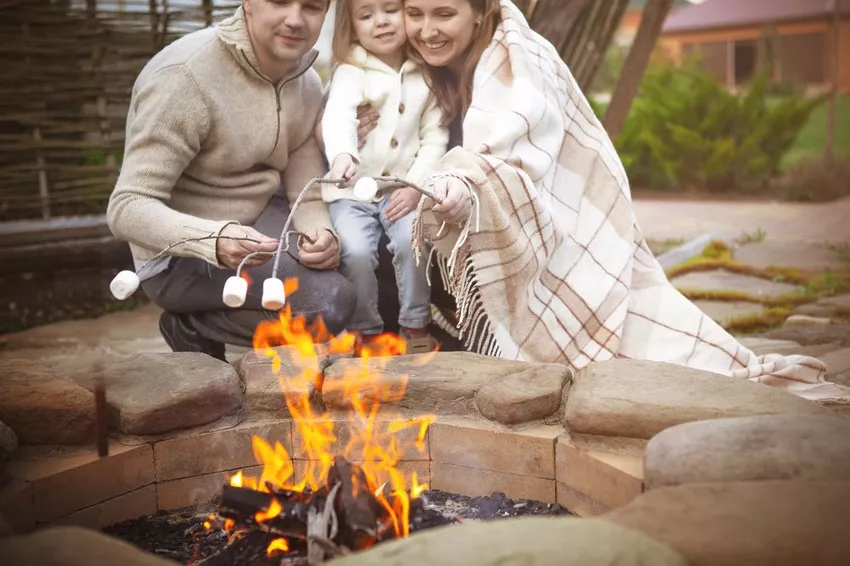
As a kid, I loved sitting around the campfire in the evenings and toasting my stick bread or marshmallows in the flames. At that time this was still easily possible. Today things look a little different. Because there are now various regulations for campfires and other fireplaces, so that many no longer know what is allowed and what is not.
In the following, you will find out under which conditions you may operate a fireplace in your garden and what you have to consider.
What is a fireplace?
A fire pit is actually just a place where you can light an open fire. Which place is best suited for this depends on the conditions in your garden. Find a spot away from trees and bushes. In addition, the surface must be fireproof - preferably within a five meter radius of the fireplace.
How your fireplace looks depends on your taste. So it's up to you how big you make it and whether you put it down or at ground level. In addition, you decide whether it should be a permanently installed or a mobile fireplace.
Tip: If you need inspiration for your fire pit design, just check out our 20 fire pit ideas.
Classic Campfire
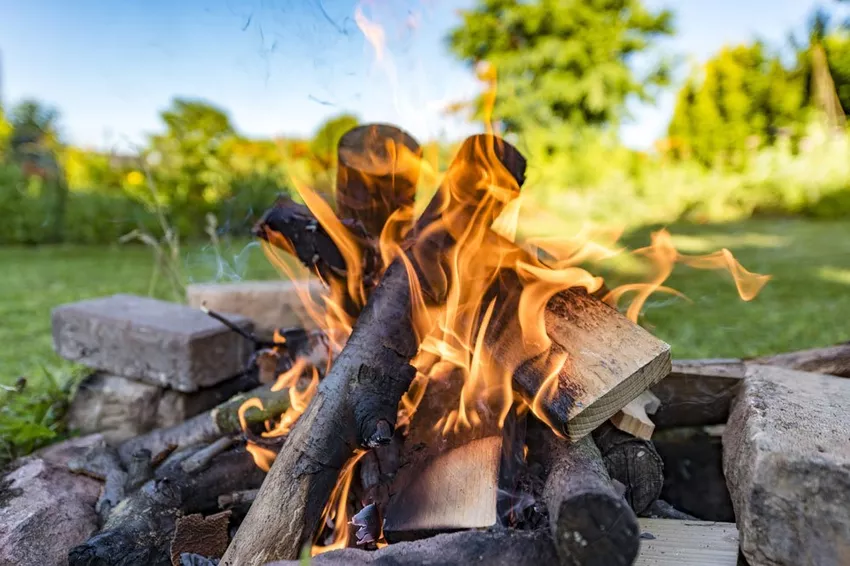
The classic campfire is timelessly beautiful, but represents an increased risk. Care must be taken here so that the fire does not spread uncontrollably. It is therefore essential to ensure that the fireplace is free of dead leaves, grass and branches. You should also dig a shallow pit for the campfire and have the excavation ready in case the fire gets out of control and needs to be put out.
Tip: The fireplace in the garden looks particularly beautiful when you frame it with stones. At the same time, the border offers protection against the spread of fire.
MasonryFire Pit
If you decide on a brick fireplace, you must first be clear about whether it should be at ground level, elevated or recessed. Because once this is finished, it can only be rebuilt with great effort.
I found a video with interesting brick fireplace design ideas:
By loading the video, you accept YouTube's privacy policy.
Learn more
Load video
Always Unblock YouTube
Mobile fireplaces
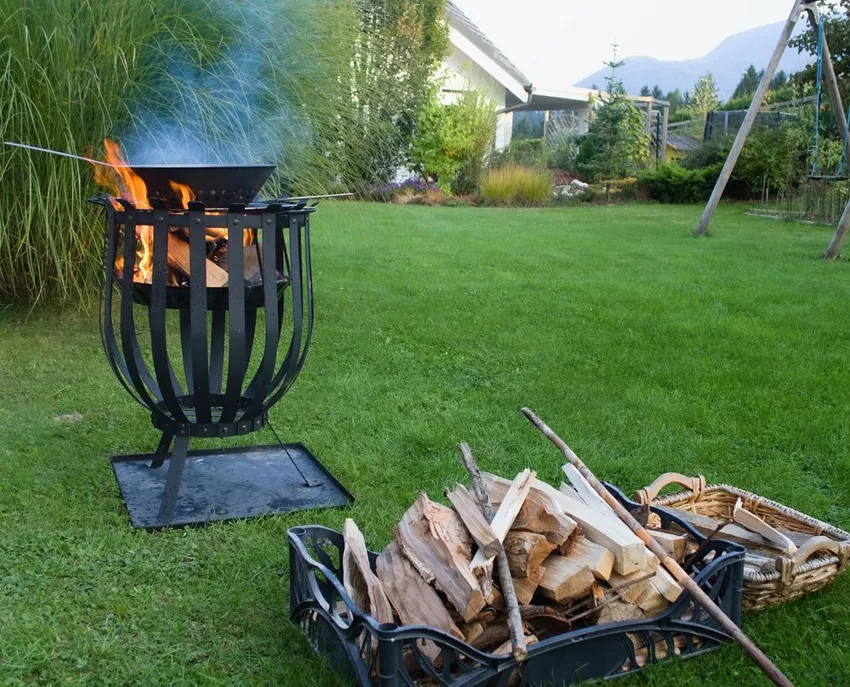
If you only have a small garden and still don't want to miss out on the campfire atmosphere, a mobile fireplace is a good idea. You can store these quickly and easily in the shed when you don't need them.
Fire bowls or fire baskets, for example, are suitable as mobile fireplaces, but also garden fireplaces or fire barrels. You can also make the latter yourself with a little manual skill and the right tools and let your creativity run free in the design. If you are interested, you can get more information about the fire barrel at feugarten.de.
Tip: Since fire bowls are very flat, there is an increased risk of sparks jumping onto flammable objects or surfaces. To prevent this, there are also fire bowls with spark protection. In addition to complete packages, retailers also only offer fire protection in various sizes.
Do fireplaces require a permit?
A campfire can create a cozy atmosphere and many people are no strangers to campfire romance. But the fact is that an open fire also harbors dangers. On the one hand, in the worst case, it can spread uncontrollably and, on the other hand, there can be an enormous amount of smoke, which your neighbors can find extremely annoying. For this reason there are now many regulations for the operation of open fireplaces - above all the Federal Immission Control Act:
§ 4 BimSchG: Approval
(1) The construction and operation of systems which, due to their nature or their operation, are particularly suitable for causing harmful environmental effects or otherwise affecting the general public or Endangering the neighbourhood, significantly disadvantagening or significantly bothering […] requires approval. [… ] (2) [… ]
Whether a fireplace is approved by the responsible regulatory or environmental agency depends not least on the region and the sizeof the planned fire. However, in most areas it is possible to start a small fire less than a meter in diameter. However, to be on the safe side, you should still inquire about the local regulations at the relevant public order office or environmental agency. Because a fire that requires a permit that you have not registered can result in a fine of up to 5,000 euros in some areas. How expensive such an offense can be in your region can be found in the current catalog of fines at bussgeld-info.de.
Tip: If your neighbors are bothered by the smoke, you must extinguish your fire even if you comply with all regulations. Because the public good has priority here.
What should be considered when operating a fireplace?
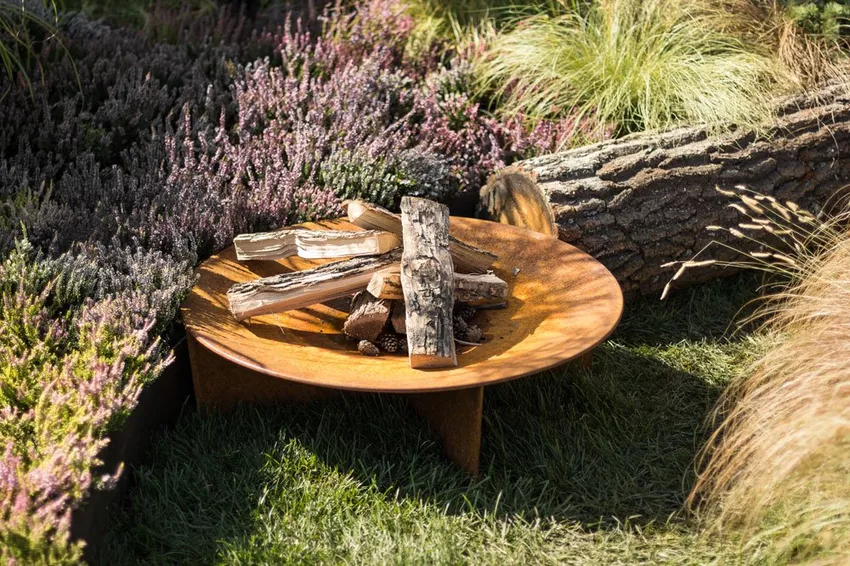
If you want to have an open fire in your garden, you always have to make sure that it is not dangerous. This results in a few restrictions that you should absolutely adhere to:
Maintain a safe distance from buildings, combustible materials, and neighbors. Provide a non-combustible environment for the fire to keep it from spreading. If it is very dry and there is a correspondingly high risk of forest fire, or if there is strong wind, you should not light a fire.Tip: You can find the current forest fire danger level on the website of the German Weather Service.
Do not use fire accelerants such as petrol or spirits. This could lead to a deflagration! Avoid too much smoke. Because according to the Federal Immission Control Act, uninvolved neighbors must not be significantly bothered or endangered. Have a fire extinguisher or other extinguishing agent (e.g. sand or water) ready in case the fire spreads. Don't leave the fire unattended!Fuel for the fireplace
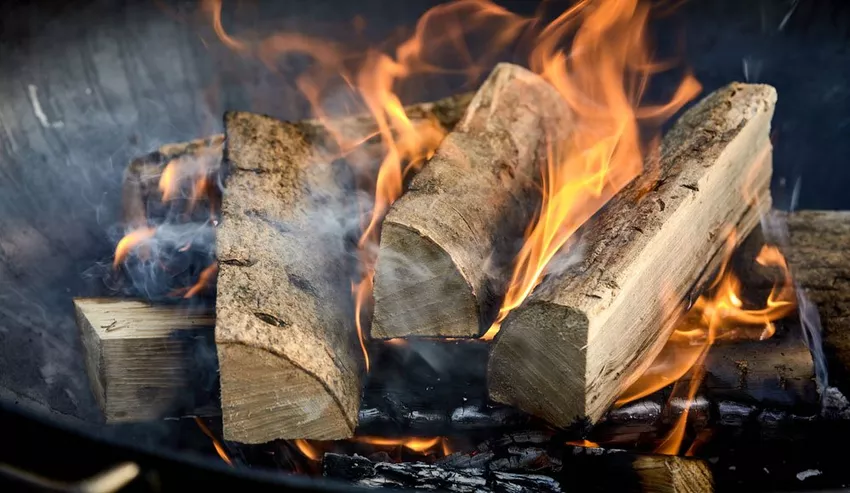
If you want to start a fire in your garden, be careful what you burn. Because not everything that burns should be in the fire.
You should always only burn dry and natural wood. Because fresh wood usually contains too much moisture and would cause too much smoke to develop. You also need to be careful about the type of wood you use, as some softwoods - such as pine, spruce, Douglas fir, or larch - contain resin inclusions that can ignite explosively if exposed to fireCome touch.
Hint: Don't just go to the forest to collect your firewood. For this you need a so-called wood collection certificate, which you can apply for at the responsible forestry office for a fee.
Burn waste in the fireplace?
If you still have garden waste lying around from the last garden event, you shouldn't just burn it. Branches, shrubs and leaves belong on the compost and may only be burned in exceptional cases. If you burn the garden waste without the approval of the responsible regulatory authority, you are acting illegally and must expect a fine.
It is also not permitted to burn garbage or treated wood. On the one hand, this would be illegal waste disposal and, on the other hand, toxic fumes can be produced. A violation can have bad consequences for you, because this is not only a regulatory offence, but may even be a criminal offence.